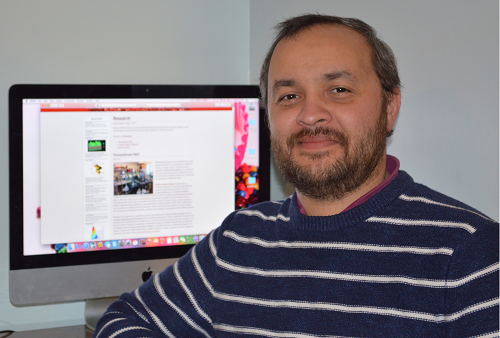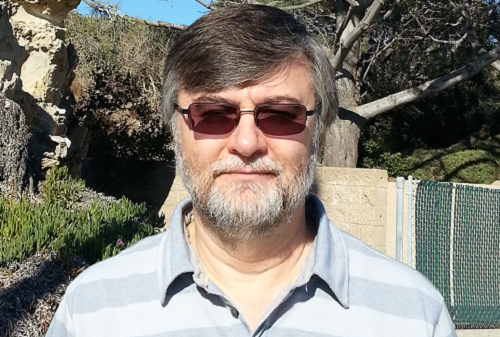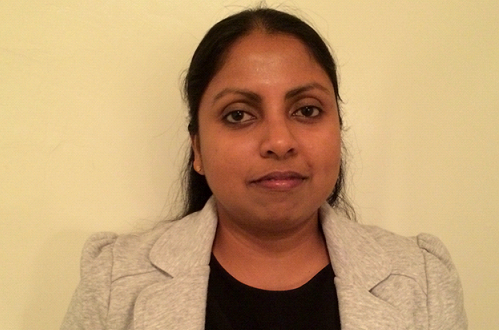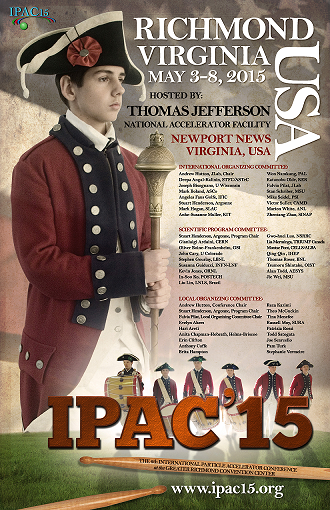IEEE PAST TC 2015 Awards
PAST Awards
The PAST Awards are sponsored by the Particle Accelerator Science and Technology Technical Committee (PAST TC) of the IEEE Nuclear and Plasma Sciences Society.
IEEE is world’s largest professional association dedicated to technology innovation. The IEEE Nuclear and Plasma Sciences Society awards the Particle Accelerator Science and Technology Awards to individuals who have made outstanding contributions to the development of particle accelerator science and technology. Two Awards are granted in each occurrence of the Particle Accelerator Conferences held in North America (PAC or IPAC).
Two Awards are granted in each occurrence of the Particle Accelerator Conferences held in North America (PAC or IPAC). The 2015 awards will be given at the 6th International Particle Accelerator Conference May 3-8 Richmond, VA USA, during the Awards Session on Thursday May 7, 2015.

|
Prof. Ivan Bazarov of Cornell University is a winner of the IEEE NPSS Particle Accelerator Science and Technology Award for 2015, “for contributions to science and technology of energy recovery linacs and high-brightness photoinjectors”. Ivan Bazarov is a Professor of Accelerator Physics at Cornell University. His research areas include high brightness photoinjectors, low emittance photocathodes, energy recovery linacs, and advanced optimization algorithms for enhancing accelerator performance. Ivan came to Cornell as a postdoc in the year 2000 and since then he has become one of the leaders in the field of low emittance photoemission sources and photocathodes. He led in the effort of designing and commissioning the world’s brightest high current photoinjector at Cornell, which demonstrated the theoretical minimum emittance in addition to the record average current beams. He also made numerous contributions to beam dynamics in energy recovery linacs and pioneered the use of multiobjective parallel optimizers for accelerator applications. |

|
Dr. Sergey Belomestnykh of Brookhaven National Laboratory is a winner of the IEEE NPSS Particle Accelerator Science and Technology Award for 2015, “for achievements in the science and technology of RF and SRF for particle accelerators”. Sergey Belomestnykh is a scientist and head of the Superconducting RF group in the Collider-Accelerator Department at Brookhaven National Laboratory and Brookhaven Professor at Stony Brook University. He has been at Brookhaven National Laboratory since 2010. Sergey received his M.S. Degree in Engineering Electrophysics from Novosibirsk State Technical University in 1981 and Ph.D. in Engineering Sciences from Budker Institute of Nuclear Physics in Novosibirsk, Russia, in 1998. In his early career Sergey Belomestnykh worked at Budker Institute of Nuclear Physics, where he contributed to design, development and commissioning of several normal conducting RF systems for circular accelerators. In 1994 he joined Laboratory for Elementary-Particle Physics at Cornell University and began working on superconducting RF (SRF) technology. Sergey was heavily involved in developing, installation, commissioning and operations of the SRF cavity cryomodules for electron-positron collider CESR, where he served as an RF group leader since 2000. He has participated in the Cornell Energy Recovery Linac (ERL) program, leading R&D and commissioning efforts on several sub-systems. His main scientific and engineering interests are in developing new SRF cavities and photoemission electron sources for particle accelerators, such as heavy ion collider RHIC, electron-ion collider eRHIC, HiLumi LHC, future circular colliders, new electron cooling schemes and ERL test facilities. Sergey’s group is working on a wide variety of SRF structures covering frequency range from 56 MHz to 2.1 GHz. The structures include quarter wave resonators for high-beta particles, SRF guns, compact crab cavities, and elliptical cavities. In addition, Sergey’s research covers development of normal conducting RF cavities, high-power RF input couplers, higher-order mode dampers, RF power amplifiers, low-level electronics and synchronization for accelerators as well as studies of electromagnetic interactions of particle beams with accelerating structures. Sergey’s contributions and expertise are widely recognized. Designs developed under his leadership have been adopted at other institutions. He has been invited to deliver talks and tutorials at many conferences and workshops, taught courses on SRF and accelerator physics and technology, written review papers, served on numerous committees. Sergey was elected as a Senior IEEE member in 2014. |
PAST Doctoral Student Award
The IEEE Nuclear and Plasma Sciences Society awards the Particle Accelerator Science and Technology Doctoral Student Award to individuals who have made outstanding thesis research in particle accelerator science and technology. This award is made to recognize significant and innovative technical contributions to the field of particle accelerator science and technology as demonstrated in a student’s doctoral thesis.
The winner of this award present a talk on their work in the Awards Session on Thursday.

|
Dr. Subashini De Silva of Old Dominion University is the recipient of the 2015 IEEE Particle Accelerator Science and Technology Doctoral Student Award, "For contributions to the development of a new class of superconducting structures for the deflection and crabbing of particle beams with a wide range of applications." Subashini De Silva received a B.S. degree in Engineering Physics from the University of Colombo, Sri Lanka, in 2004. She received an M.S. (in 2008) and a Ph.D. (in 2014) in Physics from Old Dominion University (ODU) working in the ODU Center for Accelerator Science under the guidance of Prof. Jean Delayen. The title of her dissertation is: “Investigation and Optimization of a New Compact Superconducting Cavity for Deflecting and Crabbing Applications”. The experimental work was performed in the SRF Institute at the Thomas Jefferson National Accelerator Facility (JLab). This new type of superconducting structure has a wide range of applications: crabbing systems for circular and linear accelerators; beam spreaders for light sources, electron and hadron accelerators; and beam diagnostics. Her research was supported by the U. S. Department of Energy as part of the U. S. LHC Accelerator Research Program (LARP). Currently Dr. De Silva is a Postdoctoral Associate in the Center for Accelerator Science at ODU. She is pursuing a major application of her doctoral research: a crabbing system for the High-Luminosity Upgrade of the CERN LHC as part of a world-wide collaboration. She is working on the design, development, and fabrication of a crabbing cryomodule to be installed and tested with beam at the CERN Super Proton Synchrotron (SPS). This work is also supported by the U. S. LARP. Dr. De Silva was one of the recipients of JSA/Jefferson Lab Graduate Fellowship in 2011. She has won a poster award at the 2010 International Linear Accelerator Conference in Kyoto, and at the 2014 HOM workshop at Fermilab. She gave invited talks at the 2012 International Linear Accelerator Conference in Tel Aviv, Israel, and the 2013 International Conference on RF Superconductivity in Paris, France. She has authored and co-authored several journal articles and conference proceedings, and gave numerous talks. |
